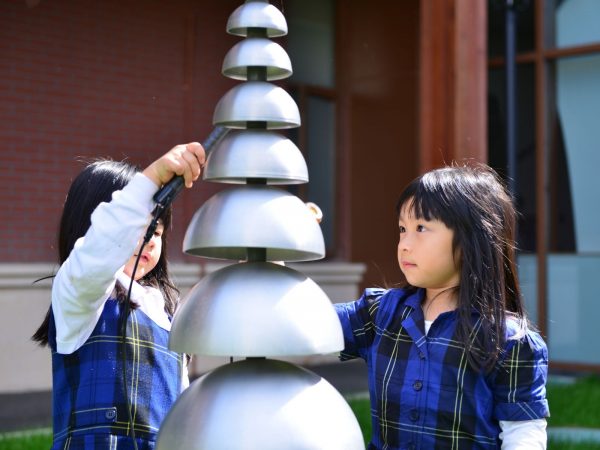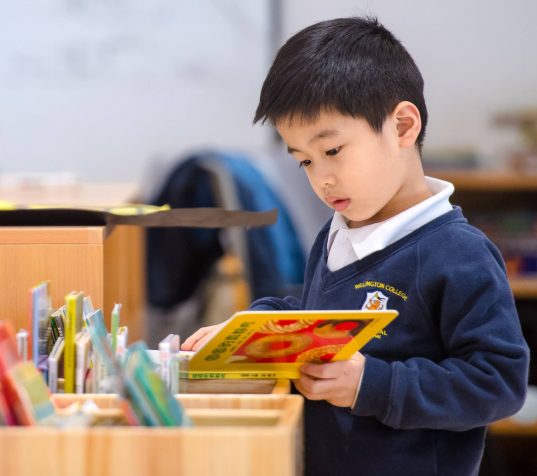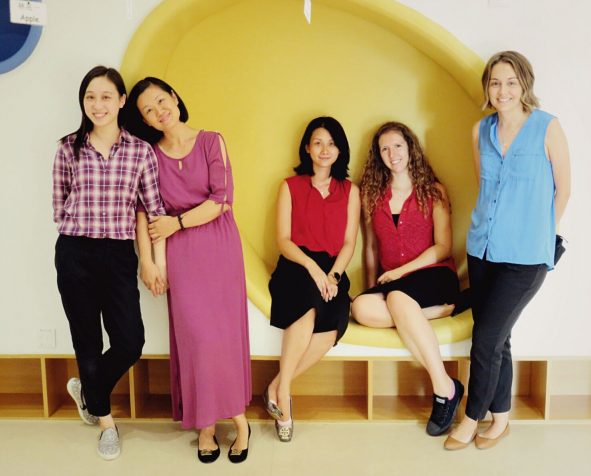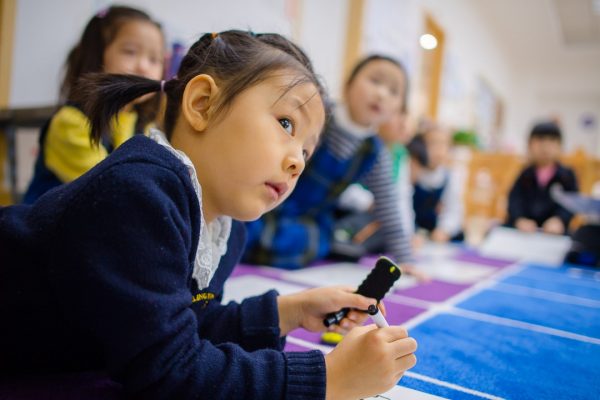As part of our ongoing WeareWellington project to discover and present the collective experience of Wellington staff, pupils and parents, Yuki Gong, deputy head of Early Years at Wellington College Bilingual Shanghai, describes Wellington’s approach to helping children access all the benefits of both the Chinese and international education systems.
I joined Wellington in December 2015 after 20 years in Chinese education to help set up the bilingual early years setting as one of only five members of staff. At that time, the setting was not yet complete and all we had to show prospective parents was a model of what it would look and feel like. However, from the moment I arrived I knew that we would be able to present our dream of what we wanted the bilingual early years setting to be and that parents would understand and respond to what we were offering. Now, with the current setting at capacity and the new school due to open in 2018, I am extremely proud and satisfied with what we have all managed to achieve together.
Current and future successes

For the past 10 years, we’ve seen many international schools open the door to China and flourish here as new ideas and practices from all over the world positively impact on the established Chinese education system. The next decade will be about focusing on refining and perfecting the bilingual education offering.
Many schools throughout China claim to be bilingual but they have not achieved a genuine integration of both parts yet. Many are still very local in their outlook and practices, they still follow curricula and mindsets that are almost exclusively influenced by traditional Chinese educational thinking. Similarly, many are too heavily focused on international systems, neglecting the benefits offered by the Chinese educational and cultural mindset.
I believe that Wellington continues to carefully and correctly balance this mixture; we are always reassessing the best ways to teach our pupils how to be outstanding global citizens. We aim to make them independent and creative thinkers, while giving them a strong Chinese cultural grounding. We want them to be highly competent English speakers, while also strengthening the range and technical skill of their spoken Mandarin. We strive to ensure that each pupil in our care becomes bilingual not only in their language ability, but in their whole academic and moral outlook, bringing the best of both worlds together.
Making bilingualism the heart of the system

Achieving this balance is only possible because our Chinese and international teachers work so closely together. They plan all lessons together in a way that allows both styles to complement one another. This means that everything the children learn is reinforced from both sides. They are constantly considering how their pupils can improve their learning in both English and Chinese at once, without either side being overlooked. This is only natural really, as we are trying to teach our pupils to think in two languages and embrace different ideas and perspectives, so it would be strange if our teaching staff didn’t do likewise.
Equally importantly, our staff ensure that the content they teach is age-appropriate. For example, in EY1 and EY2 perhaps the Chinese teachers will lead a little more strongly as the pupils listen and build up their language skills, but by EY3 and EY4 their English knowledge is coming through and it allows their teachers to challenge and stretch them. It’s a constant balancing act of building up the pupils’ confidence with the English language, while challenging them to try and use it in more fluid and sophisticated ways. Ultimately, we’ve always believed that necessity is the best encouragement: when our pupils feel that they must speak English, then it gives them to push to vocalise the knowledge that they already have inside them.
I’m really proud of the Chinese and international teaching team that we’ve built here, and of the way that they work so well together. By constantly sharing and testing out ideas together, we can present the children with the best educational practices and knowledge gathered from around the world.
Maintaining an open dialogue

While bilingualism is about keeping an open mind, it’s also about keeping an open ear. I believe that our bilingual education system works so well not only because we are receptive to new ideas, but also because we listen to one another and keep adjusting the way we do things based on that feedback. This goes for listening to parents and pupils as well as other teachers. The Wellington community is very strong because we develop such meaningful relationships with one another built on trust and respect.
I believe that it’s very important that we understand, as teachers and as senior leaders, that sometimes we can make mistakes and we don’t always make the best decisions. However, what works so well here is that we always keep listening and taking feedback, so that we can then make the right changes wherever necessary. It’s not an admission of guilt or failure to listen to criticism or a proposed change, it’s a genuine desire to understand and resolve any issue or anxiety a parent, fellow teacher or leader might have.
Like with any element of bilingual teaching, if we know the problems, if we study the issues, we can do better. That’s the Wellington way, I believe. By taking on the ideas and feedback of everyone in our community in an open, transparent and sincere way, Wellington continues to take the best of China and the rest of world, ready to deliver it to the pupils in our care.
Looking ahead to the new campus

While the development of the new site is very exciting, what really pleases me is knowing that it will still have the same atmosphere, the same great standard of bilingual education delivered by the same amazing teachers. All that will change is that we will have more space, and more resources, to keep experimenting and keep refining our educational approach.




